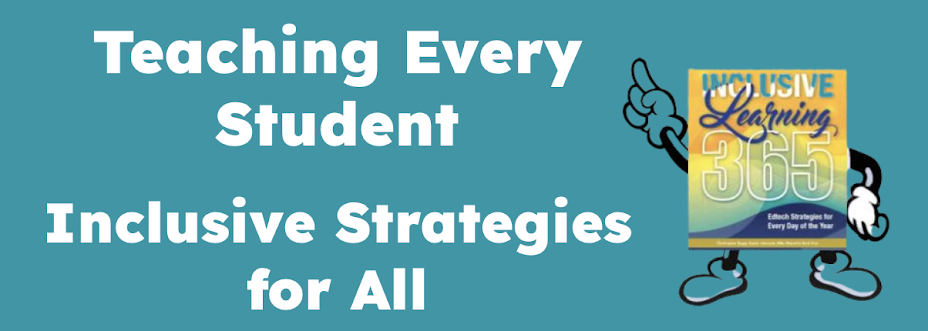I would like to revisit a point that Bridgette Nicholson made in her CTG presentation last week on The Power of Voice. She commented that we need to strive for independence and achievement vs. dependence and assisted work.
This is a very important point.
How many times have we seen a paraprofessional assigned to a student with learning challenges? How effective is this strategy in helping the student to achieve independence? Does this approach, in fact, foster dependence?
I experienced this first hand with a student that I was called in to evaluate a few years ago. She had a paraprofessional assigned to her for several years and she was ready to graduate. But, the team realized that she was unable to read or write even one sentence because all reading had been read to her and she had dictated all written work to an adult! An excellent article that addresses this point is called, "Be Careful What you Wish For....Five Reasons to be Concerned about the Assignment of Individual Paraprofessionals."
Be aware of the unintended consequences. In the short term, it may appear expedient to assign an adult to a struggling learner. But often times, the student learns helplessness and dependence instead. Assistive Technology tools and devices often bridge the gap from dependence to independence when integrated into the curriculum and when staff and student are effectively trained in their use.
There are many options to encourage independence. Let's continue to encourage each student to reach their potential and make effective progress through the appropriate use of assistive technology.

1 comment:
I feel strongly about this as well. Some time it is pressure to get the student though the work, and the day. In some cases that pressure came from parents who want their childern to do the work of their peers and could not reconcile the fact that the work amount/type/goals should be differnt.
I believe we should accept what abilities we have and learn to work with them, and to adapt what we have, or find new strategies to compensate for our weakness. This is true for everyone.
Post a Comment